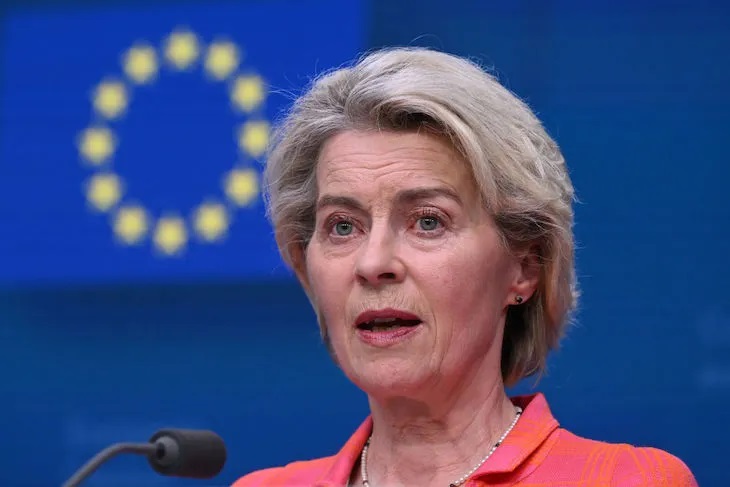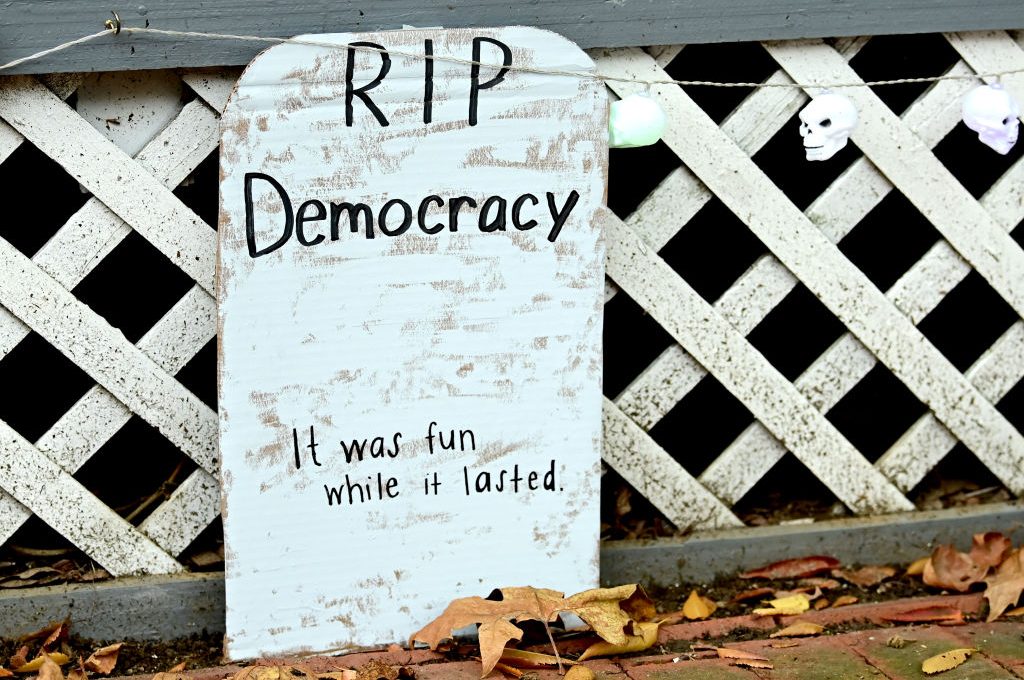As in a more delirious version of Bill Murray’s Groundhog Day, Donald Trump withdrew from the Paris Climate Accord on his first day in office, again.
In a thinly-veiled attempt to mend Beijing’s relations with Europe, Chinese foreign ministry spokesman commented: “Climate change is a common challenge facing all of humanity. No country can stay out of it, and no country can be immune to it.”
Whatever their views on climate change, Europeans would do well to realize that decades-long effort to reduce emissions through multilateral deals is over. Continuing on one’s own — after America’s explicit repudiation of the COP framework, and in light of the track record of economies such as China and India — is worse than embracing a cargo cult. It means sacrificing Europe’s prosperity and security in exchange for quite literally nothing.
Sticking with the current decarbonization agenda, while Trump vows to ‘drill, baby, drill,’ makes for disastrous politics
In 2023 alone, the Chinese economy emitted over 12 billion metric tons of CO2, almost three times as much as the United States and five times as much as the EU. If Chinese emissions do come down eventually, following a history of missed targets, its will be due to a contracting population and a looming economic crisis, not because of benevolent, forward-looking government policies.
If one worries about global emissions, as one should, then the EU’s ambitious decarbonization agenda makes sense primarily as a lever than may induce other, much larger pollutants into embracing a similarly ambitious agenda. There is little evidence that it ever did in countries such as China or India. And without the United States in the game, it requires a suspension of disbelief to see the EU’s effort to bring down its emissions (6 percent of the world’s total) as anything else but a sham.
True, an overwhelming majority of Europeans may be saying in surveys that climate change is an important problem — of course it is. Respondents may even embrace emissions targets, in the abstract — but if one drills deeper, large numbers who expect energy policy, at the national and EU level, to deliver low energy prices, first and foremost. Yet European energy prices remain far above their pre-2022 levels. They are also dramatically higher (i.e. three to four times) than in the United States.
Sticking with the current decarbonization agenda, while Trump vows to “drill, baby, drill,” makes both for bad policy and disastrous politics. The hundreds of billions of euros from the Next Generation EU program, adopted in the wake of the pandemic and spent largely on a decarbonization agenda, could have bought Europe of a lot of artillery shells, drones and tanks.
One also wonders whether the impending sense of doom, caused by the threat posed by cheap Chinese EVs to German car manufacturing industry, is an artifact of the rush to embrace electromobility through explicit subsidies, tax breaks, and unrealistic emissions standards imposed on combustion engines. Takes those away and the looming crisis of Germany’s Mittelstand and of the connected supply chains may become much smaller.
Finally, there is political instability and weaponization of energy by bad faith actors. France’s Yellow Vests have never quite gone away but rather channeled their energy toward the far right and the far left, increasingly displacing more conventional political parties. The Slovakian leader Robert Fico’s shenanigans in Russia and his posturing against Ukraine works only against a background of high energy prices.
For many, fighting climate change has become an integral part of their identity as responsible, thoughtful Europeans. Back in 2019, president of the European Commission Ursula von der Leyen talked of the Commission’s decarbonization agenda as a “man on the moon moment.” But, occasionally, the role of political leaders is to kill sacred cows when circumstances warrant it. In this case, if moderate, centrist politicians do not back out from this blind alley quickly, extremists will.
The good news is that decarbonization is going to happen, eventually — renewables, modular nuclear reactors and geothermal energy are improving by the day. The bad news, alas, is that it may arrive too late to avert some of the costs of large-scale climate change.
But, for better and worse, world politics does not revolve around teachings of environmental economics. Climate change is a global collective action problem and humankind does not have exactly a stellar track record at providing first-best, textbook solutions to such problems. And if they act alone, the EU and the UK will do nothing of the sort — they will simply put their economies through further suffering and hand over a geopolitical advantage to Europe’s foes.

























